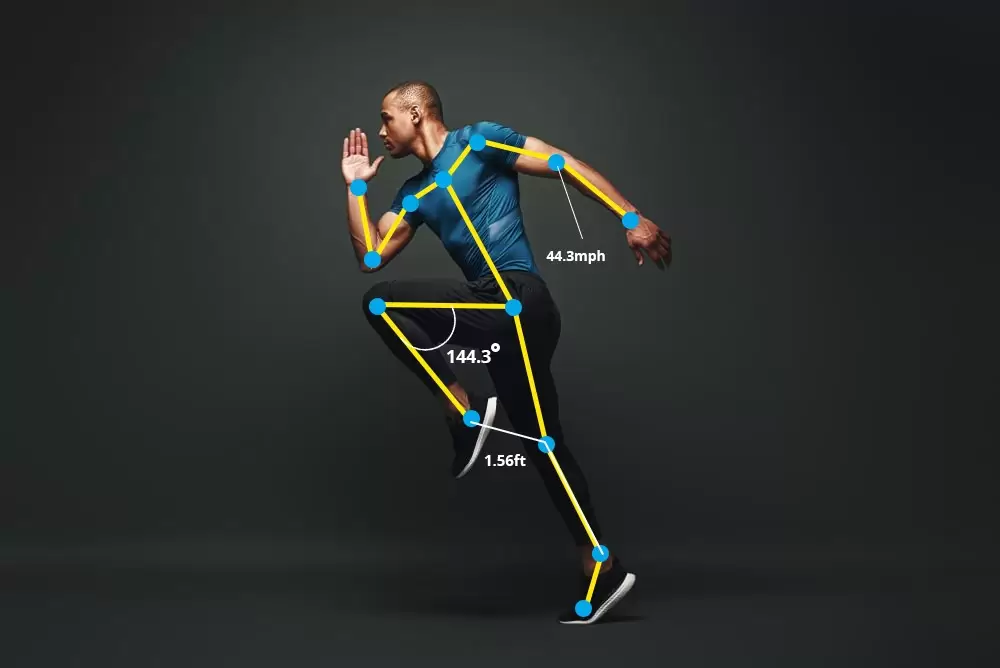Artificial Intelligence (AI) has permeated various aspects of human life, and the realm of sports is no exception. From enhancing performance analysis to revolutionizing training techniques, AI is playing a significant role in shaping the future of sports. In this article, we’ll explore how AI is being utilized in sports for data analysis and training.
Data Analysis:
One of the most prominent applications of AI in sports is in data analysis. Athletes and coaches are leveraging AI algorithms to extract valuable insights from vast amounts of data, including player statistics, game footage, and biometric measurements. Here’s how AI is transforming data analysis in sports:
Performance Analysis: AI-powered analytics platforms can process large datasets to provide detailed performance insights. By analyzing player movements, tactics, and game patterns, coaches can identify strengths and weaknesses, optimize strategies, and make informed decisions during matches.
Injury Prevention: AI algorithms can analyze biometric data collected from wearable sensors to detect patterns indicative of injury risk. By monitoring athletes’ movements and physiological indicators in real-time, coaches and medical staff can intervene proactively to prevent injuries and optimize training regimens.
Scouting and Recruitment: AI tools can assist scouts and recruiters in identifying talented athletes by analyzing performance metrics and player characteristics. By crunching data from various sources, including match statistics and social media activity, AI can uncover hidden gems and streamline the talent identification process.
Fan Engagement: AI-driven analytics platforms enable sports organizations to personalize fan experiences by delivering targeted content and recommendations. By analyzing fan preferences, behaviors, and social media interactions, teams can tailor marketing campaigns, enhance fan engagement, and drive revenue.
Training:
AI is also revolutionizing the way athletes train, providing personalized coaching, feedback, and performance optimization. Here’s how AI is transforming training methodologies in sports:
Virtual Coaching: AI-powered virtual coaching platforms use computer vision and machine learning algorithms to analyze athletes’ movements and provide real-time feedback. By comparing performance metrics to predefined benchmarks, virtual coaches can identify areas for improvement and suggest corrective actions to enhance technique and efficiency.
Simulation and Prediction: AI-based simulation tools allow athletes to simulate game scenarios and predict outcomes based on historical data and performance analytics. By practicing in simulated environments, athletes can refine their decision-making skills, develop strategic insights, and prepare for competitive challenges.
Personalized Training Programs: AI algorithms can analyze individual performance data and physiological parameters to tailor training programs to athletes’ specific needs and goals. By adjusting training intensity, duration, and exercises in real-time, coaches can optimize performance gains and minimize the risk of overtraining or injury.
Rehabilitation and Recovery: AI-powered rehabilitation systems leverage machine learning algorithms to design personalized recovery protocols based on athletes’ injury profiles and progress. By monitoring rehabilitation exercises and tracking physiological responses, AI can accelerate recovery timelines and enhance rehabilitation outcomes.
In conclusion, AI is revolutionizing the world of sports by providing powerful tools for data analysis and training. From optimizing performance analysis and injury prevention to personalizing coaching and training programs, AI is empowering athletes and coaches to achieve new levels of success. As AI technology continues to evolve, its impact on sports is poised to grow exponentially, driving innovation and shaping the future of athletics.
Team T2S1.

